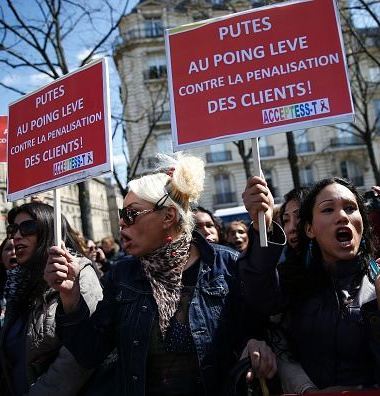Prostitutes fear for their futures as France makes paying for sex illegal
Women’s rights campaigners were sharply divided today over a new law which makes it illegal to pay for sex in France. Supporters say the legislation, finally passed yesterday by MPs after two years of debate, will protect sex workers from trafficking gangs and violent clients and give them a path out of prostitution. Opponents, however, say it means clients will be more likely to hide their identities and make it harder for violent ones to be traced. “We have had cases where clients have helped people escape from situations of coercion,” said Catherine Stephens, an activist with the UK-based International Union of Sex Workers told the BBC. “Criminalising the client actively works against that.”
We are giving to the prostituted person a new tool to defend themselves and protect themselves. If anything happens, if the client is violent, if anything wrong happens, then now they have the law on their side.
Anne-Cecile Mailfert, president of the Women’s Foundation in France
The law, approved by 64-12 in a vote among MPs, could see offenders hit with fines of up to €3,750 ($4,275) for buying sexual acts. They will also be made to attend awareness classes on the harms of the sex trade. The legislation is one of the toughest against sex buyers in Europe, although prostitution remains legal. Dozens of sex workers protested against the law during the final debate in the National Assembly in Paris. They waved banners reading: “Don’t liberate me, I’ll take care of myself." One sex worker, Orlena, said: "Tomorrow we will be in total insecurity. We won’t be able to declare any more what we earn, we won’t be able to pay our social taxes nor our bills.”
The power relationship with their clients will be completely different as they will be in a position of strength such as ‘I am not guilty, but you, what you’re doing is against the law’.
Claire Quidet, a sex worker supporter

prostitution france